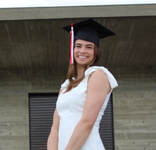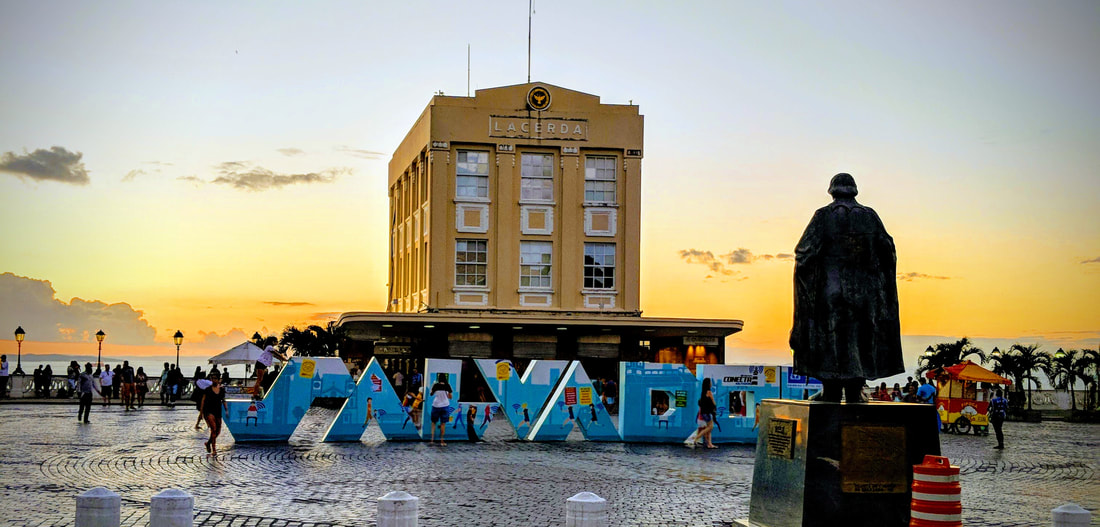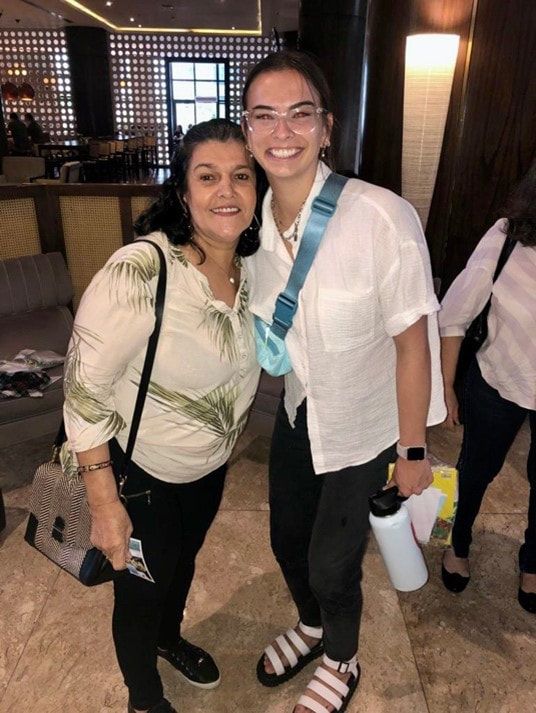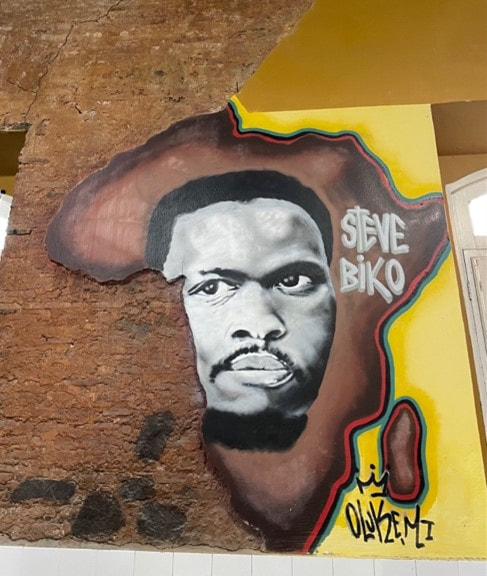|
By Lily Frederiks The most profound thing that I have learned through my experience in Brazil so far is that it is crucial to open oneself to new experiences, even when these are way out of one’s comfort zone. In the last week and a half, I have done things I never thought I would do, such as living alone with a host family that does not speak my language, practicing capoeira, dancing to Afro-Brazilian choreography, playing unknown Brazilian instruments, and more. Sometimes, some of my peers appear more closed off to these things because they are very out of their element, as am I. However, by pushing myself to speak Portuguese to my host family even when I mis-pronounce words, and by making a fool of myself while dancing in ways I have never danced before, I feel so connected to Brazilian culture and identity and I understand much more what it means to be Brazilian. As an article we read mentions, it is often in the most unexpected of settings that we learn the most about a culture (Baiocchi and Connor, 2008). For example, I have learned so much about Brazilian culture, race, gender, and wealth dynamics from talking to my host family without even asking them questions about these topics. The most interesting interaction I have had was with Pedro, my host mom’s 19-year old grandson who lives with us. We were walking home one night and talking about cultural differences between the U.S. and Brazil. When we got closer to the apartment, he said, “You know you are living with the poor people, right?” I did not expect this. I truly did not know how to respond. I had noticed that he and his family were lower middle-class, but I never associated their neighborhood with the word “poor.” Upon talking to Prof. Dos Santos, he said that Pedro may have said this out of immaturity and if his mom knew he had said this, she would have been upset. I reflected on how his mom works long hours at the hospital as a nutritionist, most likely working hard for money to support Pedro, and Pedro may not see this clearly. He told me that he dropped out of the University, and my host mom described him as “always doing nothing,” which I found amusing, as he seems to be the definition of an angsty teenager. If I had not probed Pedro on this walk with questions about culture, we might have never developed a rapport with one another and he would not have made this comment. This reminded me of articles we read relating to racial categories in Brazil. It made me think of how Brazilians often identify as something different racially than what others see them as, which may relate to how Pedro sees his family as poor when others may not (Bueno and Dunning 2017). I have yet to ask my host family what ethnicity they identify as, but I am hoping to when the right time comes. It can be an awkward question to ask, but I believe that I will not learn if I do not have these interactions. Another thing that Pedro said that took me aback was when we were talking about sports, I said that I played tennis, and he said, “you must have a lot of money, that’s the rich people’s sport.” This comment I was not as surprised by because I have heard this sentiment before, but not this blatantly. I have never thought of myself as having a lot of money – I would consider my family middle-class. But Pedro said that in order to play tennis in Brazil, you must belong to a club which is very expensive to join. I told him that in the U.S., this used to be the case, but that now you can play for your school and joining leagues is much cheaper and accessible for people of all incomes. This reminded me of Chapter 5 from Becoming Brazilians, in which the author describes how Brazilians were able to rally around a sport like soccer because it was for “the common man,” was relatively cheap to play, and was a way for working-class Brazilians to rally around their Brazilian identity. Therefore, this was not the case for sports like tennis where you had to pay money to join. When I first arrived in Salvador, it was not what I was expecting. It was denser, more crowded, and more dangerous than I thought it would be and the language barrier made me anxious. To be frank, I felt as if I did not belong here – I was experiencing a culture shock. However, the minute I met my host mom, I felt comfortable. It was amazing to finally meet a real Brazilian in person that I formed such a genuine connection with. I was extremely nervous to meet my host family at first because I was going to be living with them alone and would not have any of my peers to fall back on, but I pushed myself to have conversations with them despite the language barrier, and I feel like I have learned so much Portuguese just by listening to them. Additionally, with being able to understand more of their language, I have been able to have more meaningful conversations which has been one of my favorite parts of this experience. In fact, I truly believe that although I was desperate to live with a classmate at first, God put me on a path to live alone so that I could get more out of this last college experience. So, my word of advice for anyone going abroad would be to try everything and anything because you will learn to appreciate a different culture and will learn so much about yourself in the process. As I learned at the Steve Biko Institute, most people in this world and in Brazil do not have the privilege of studying abroad (Rivera, Lecture, 5/20/22), so it is crucial to recognize the opportunity you have been given. Baiocchi, Gianpaolo, and Brian T. Connor. “The Ethnos in the Polis: Political Ethnography as a Mode of Inquiry.” Sociology Compass 2, no. 1 (2008): 139–55. https://doi.org/10.1111/j.1751-9020.2007.00053.x. Bueno, Natália S., and Thad Dunning. 2017. “Race, Resources, and Representation: Evidence from Brazilian Politicians.” World Politics 69 (2). Cambridge University Press: 327–65. doi:10.1017/S0043887116000290. Eakin, Marshall C. 2017. “The Beautiful Game: Performing the Freyrean Vision.” Chapter. In Becoming Brazilians: Race and National Identity in Twentieth-Century Brazil, 165–99. New Approaches to the Americas. Cambridge: Cambridge University Press. doi:10.1017/9781316800058.007. Rivera, Jorge. May 20, 2022. Lecture/Personal Communication. Steve Biko Cultural Institute.  Lily Fredericks recently graduated from CSB majoring in political science and minoring in environmental studies and psychology. She is originally from Eden Prairie, Minnesota and is interested in law, public policy, and different ways to protect the environment. She likes to play tennis and be outdoors.
0 Comments
Leave a Reply. |
Archives
June 2024
Categories
All
|



 RSS Feed
RSS Feed
